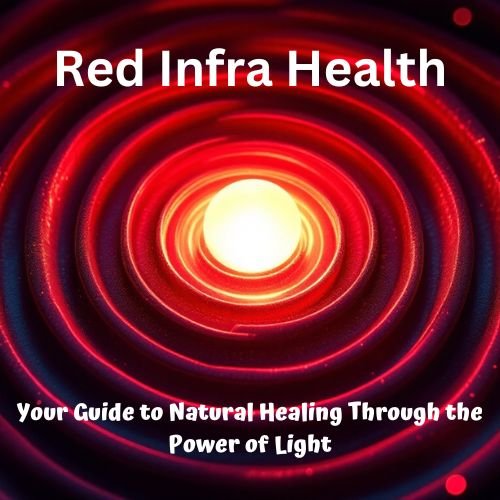You can boost your blood flow quickly through seven natural methods that work together. Start by moving your body through activities like brisk walking or gentle stretching. Add circulation-boosting foods like beets, leafy greens, and fatty fish to your diet. Stay well-hydrated by drinking water throughout the day. Practice deep breathing exercises like the 4-7-8 method to enhance oxygen flow. Manage your stress through meditation or yoga. Consider herbal supplements like ginger or ginkgo biloba under professional guidance. Finally, quit harmful habits like smoking. These proven strategies will help you create lasting improvements in your circulation and overall cardiovascular health.
Move Your Body Daily

Getting your body moving every day is one of the most effective natural ways to enhance blood flow throughout your system. Regular exercise expands your network of capillaries and improves endothelial function, making your blood vessels more efficient at delivering oxygen and nutrients to your tissues.
You don't need to engage in intense workouts to see benefits. Start with simple activities like brisk walking, swimming, or dancing. These aerobic exercises help keep your arteries wider and more flexible, reducing blood pressure and minimizing plaque buildup. Following a consistent routine can boost nitric oxide production in your blood vessels.
Adding strength training to your routine will increase lean muscle mass, giving your cardiovascular system more options for blood distribution.
If you're new to exercise, begin slowly with low-impact activities like yoga or gentle walking. You'll want to wear supportive shoes and gradually increase your activity duration and intensity. Remember to consult your healthcare provider before starting a new exercise program, especially if you have existing health conditions. They can help design a safe, personalized plan that maximizes circulation benefits while considering your individual needs.
Even short periods of daily movement can notably lower your risk of heart disease, stroke, and diabetes.
Eat Blood Flow Boosting Foods
You'll find powerful circulation boosters in nitrate-rich vegetables like beets and leafy greens, which naturally dilate your blood vessels and enhance blood flow.
Adding omega-3 rich foods, such as fatty fish, walnuts, and flaxseeds, helps release nitric oxide in your body and reduces inflammation in your blood vessels.
Common kitchen spices like turmeric and ginger can also improve your circulation by enhancing blood vessel function and lowering blood pressure. Cayenne pepper can effectively stimulate blood flow by relaxing your blood vessel muscles.
Nitrate-Rich Vegetables Matter
The power of nitrate-rich vegetables lies in their remarkable ability to enhance blood flow and support heart health. When you eat these vegetables, your body converts their nitrates into nitric oxide, which helps dilate your blood vessels and improve circulation.
Just one cup of nitrate-rich vegetables daily can make a significant difference in your cardiovascular health. Long-term studies show that people who regularly consume these vegetables experience a 15% lower risk of cardiovascular disease.
You'll find the highest nitrate content in leafy greens like spinach, arugula, and kale, as well as in beets. While cooking reduces nitrate levels by about 50%, you'll still get enough to benefit your heart.
Aim for about 59 mg of nitrates daily, as research shows this is where the cardiovascular benefits plateau.
To maximize nitrate absorption, pair these vegetables with vitamin C-rich foods, as this nutrient enhances nitric oxide bioavailability. You can also boost nitric oxide production by including foods rich in arginine and citrulline, such as nuts, seeds, and watermelon.
If you're choosing between raw and cooked vegetables, remember that raw options provide more nitrate benefits, though both forms contribute to better blood flow and overall heart health.
Omega-3 Foods Essential
Incorporating omega-3-rich foods into your diet stands as a cornerstone strategy for enhancing blood flow and cardiovascular health. These essential fatty acids work by promoting blood vessel dilation, reducing inflammation, and preventing blood clot formation. You'll find that regular consumption of omega-3s helps maintain vascular elasticity while protecting against cardiovascular disease. Research shows that omega-3s are highly concentrated in eyes and contribute significantly to overall cellular health.
| Food Source | Benefit | Daily Target |
|---|---|---|
| Fatty Fish | Reduces Inflammation | 240g twice weekly |
| Flaxseed/Chia | Dilates Blood Vessels | 2-3 tablespoons |
| Walnuts | Improves Circulation | 1-2 ounces |
For ideal results, you'll want to aim for about 850mg of omega-3s daily, combined with 300mg of natural vitamin E. If you can't get enough through diet alone, consider fish oil supplements at 2-3 grams per day. You'll notice the best results when you maintain consistent intake through both food sources and supplements. The key lies in the omega-3s' ability to enhance endothelial function and protect blood vessels from oxidative damage. They're particularly effective at reducing arterial stiffness and maintaining healthy blood pressure levels through their anti-inflammatory properties.
Spices Improve Circulation
Among the most potent natural remedies for improving circulation, specific spices stand out for their remarkable ability to enhance blood flow throughout the body.
Cayenne pepper contains capsaicin, which dilates your blood vessels and prevents arterial clogging, while turmeric's active compound curcumin boosts nitric oxide production to widen your vessels and reduce inflammation.
Cinnamon acts as a powerful vasorelaxant, helping to lower both your systolic and diastolic blood pressure. Garlic's allicin content naturally thins your blood and relaxes blood vessels, reducing pressure on your cardiovascular system.
Don't overlook ginger, which not only improves circulation but also fights inflammation and aids digestion.
For maximum benefits, you can combine these spices with other circulation-boosting ingredients like ginkgo biloba, which specifically targets brain blood flow and memory enhancement. If you're looking for additional options, cardamom shows promise in improving circulation, though research is still ongoing.
Whether you're adding these spices to your meals or taking them as supplements, they'll work together to enhance your overall circulation and support your heart health.
Stay Properly Hydrated

Proper hydration stands as a cornerstone of healthy blood circulation, directly impacting your blood volume and heart function.
When you're dehydrated, your blood thickens and your blood volume decreases, forcing your heart to work harder to pump blood throughout your body. This strain on your cardiovascular system can lead to reduced oxygen delivery to your organs and muscles.
Your blood is about 90% water, making hydration vital for maintaining its proper viscosity. When you don't drink enough fluids, your kidneys try to compensate by adjusting how much water they filter into urine. This can trigger a problematic cycle where your blood pressure fluctuates between low and high levels, particularly during physical activity.
You'll know you're becoming dehydrated if you notice signs like thirst, dark urine, or dizziness.
To maintain healthy circulation, make drinking water a regular habit throughout your day. This simple practice helps your heart pump blood efficiently, keeps your blood pressure stable, and guarantees oxygen reaches your tissues effectively.
Proper hydration isn't just about comfort—it's essential for your cardiovascular health and overall wellbeing.
Practice Deep Breathing Techniques
Through mindful deep breathing exercises, you can greatly enhance your blood circulation and cardiovascular health. Studies show that consistent deep breathing practices can lower your systolic blood pressure by 9 mmHg in just six weeks while improving endothelial cell function by up to 45%.
You'll find several effective techniques to incorporate into your daily routine.
The 4-7-8 breathing method involves inhaling through your nose for four counts, holding for seven, and exhaling for eight counts. Practice this sequence three to four times consecutively to quickly lower your blood pressure.
For diaphragmatic breathing, lie down with your knees bent and place one hand on your chest and another below your rib cage. Breathe slowly through your nose, letting your stomach push against your hand, then exhale through pursed lips.
Try box breathing when you need focus and calmness – inhale, hold, exhale, and hold again, each for four counts. This technique increases carbon dioxide levels temporarily, reducing your heart rate and promoting parasympathetic response.
These exercises boost nitric oxide production, leading to better vasodilation and improved blood flow throughout your body.
Master Stress Management

Chronic stress substantially constricts your blood vessels and impairs circulation, making stress management essential for maintaining healthy blood flow. To combat this, you'll need to incorporate proven relaxation techniques into your daily routine. Start with deep breathing exercises and meditation, which activate your body's natural relaxation response and improve circulation throughout your system.
Physical activity serves as a powerful stress-management tool while simultaneously boosting blood flow. When you engage in regular exercise, especially aerobic activities like walking or jogging, your body releases endorphins that naturally reduce stress levels and promote better circulation.
Make sure you're moving regularly throughout the day to prevent stiffness and enhance blood flow.
You can further optimize your stress management by making smart lifestyle choices. Focus on maintaining a nutrient-rich diet, getting adequate sleep, and avoiding harmful habits like smoking or excessive alcohol consumption.
Don't forget to incorporate mindfulness practices and self-care activities into your schedule. Taking regular breaks, practicing time management, and building strong social connections will help you build stress resilience while maintaining healthy circulation throughout your body.
Try Herbal Supplements
You'll find numerous powerful herbs that can naturally enhance your blood circulation, including ginkgo biloba, cayenne pepper, and hawthorn berries.
When combined thoughtfully, these herbs work together to dilate blood vessels, reduce inflammation, and improve overall blood flow throughout your body.
Starting with one herb and gradually adding others under professional guidance lets you safely build an effective herbal routine for ideal circulation.
Powerful Circulation-Boosting Herbs
Four powerful herbal supplements stand out for their remarkable ability to enhance blood circulation naturally.
Ginkgo biloba improves blood flow throughout your body, particularly to your brain, while increasing nitric oxide levels to dilate blood vessels and support cardiovascular health. It's also effective for circulation-related sexual dysfunction.
Cayenne pepper contains capsaicin, which widens your blood vessels and breaks down arterial plaque. You'll benefit from improved digestion, reduced heart palpitations, and enhanced blood detoxification.
Hawthorn helps relax your veins and protect them from damage while lowering blood pressure. It's particularly beneficial if you're recovering from heart problems, as it reduces anxiety and neck pain.
Ginger regulates your blood flow and helps transport nutrients more efficiently throughout your body. You'll notice reduced LDL cholesterol levels and improved menstrual flow if you're experiencing cramping. Its anti-inflammatory properties make it especially valuable for overall cardiovascular health.
When you're looking to enhance circulation naturally, these herbs offer proven benefits that can make a significant difference in your circulatory health.
Safe Herbal Combinations Work
Effectively combining herbal supplements can maximize their circulation-boosting benefits while ensuring safety. When selecting combinations, you'll want to start with proven circulation enhancers like ginkgo biloba and hawthorn, but you'll need to be mindful of potential interactions, especially if you're taking blood thinners or blood pressure medications.
You can safely pair ginger root with cayenne pepper to improve blood flow and reduce cholesterol levels. Adding pine bark extract to this combination helps strengthen your blood vessels while supporting your immune system.
Remember to complement these herbs with circulation-friendly foods like salmon, beets, and berries, which provide essential omega-3s and nitrates.
Before starting any herbal combination, you'll need to consult your healthcare provider, particularly if you're on prescription medications. It's vital to monitor your blood pressure regularly and stick to recommended dosages.
Don't forget to maintain an active lifestyle – regular exercise enhances the effectiveness of these herbal supplements. By combining the right herbs with proper dietary support and staying physically active, you'll create a thorough approach to improving your circulation naturally.
Quit Harmful Habits

Breaking away from harmful habits stands out as one of the most important steps toward improving blood flow and overall cardiovascular health.
Smoking severely damages your arteries' lining, reduces oxygen in your blood, and increases your risk of heart disease through harmful inflammatory processes. You'll need to quit smoking completely to protect your heart, so consider nicotine replacement therapy or join a support group for assistance.
Your sedentary lifestyle can harm your cardiovascular system even if you don't have other risk factors. Make it a priority to schedule at least 30 minutes of daily exercise through activities like walking, swimming, or cycling to strengthen your heart muscles and improve circulation.
You'll also need to address poor dietary choices that restrict blood flow. Cut back on saturated fats, trans fats, processed foods, and excessive salt while incorporating more fruits, vegetables, and whole grains.
Don't forget to manage your stress levels and alcohol consumption, as chronic stress raises blood pressure and heart rate. Limit your drinking to moderate amounts – one drink daily for women, two for men – and practice stress-reduction techniques like meditation or deep breathing.
Frequently Asked Questions
Can Cold Showers Help Improve Blood Circulation Throughout the Body?
Yes, cold showers can improve your circulation. They cause your blood vessels to constrict and dilate, which enhances blood flow to essential organs and muscles while training your cardiovascular system for better efficiency.
How Long Does It Take to See Improvements in Circulation?
You'll notice initial circulation improvements within 2-4 weeks of consistent lifestyle changes. However, significant results typically appear after 2-3 months of regular exercise, proper diet, and healthy habits like leg elevation.
Does Sleeping Position Affect Blood Flow to the Brain?
Yes, your sleeping position substantially affects brain blood flow. You'll get the best circulation when sleeping on your side, as this position maximizes blood outflow and helps your brain remove waste more efficiently.
Can Tight Clothing or Accessories Restrict Healthy Blood Circulation?
Yes, your tight clothing and accessories can substantially restrict blood flow. When you wear constrictive items, they'll compress your blood vessels, potentially causing poor circulation, swelling, and increased risk of varicose veins.
Is There an Ideal Temperature Range for Maintaining Optimal Blood Flow?
You'll maintain ideal blood flow when your environment stays between 68-72°F (20-22°C). This range helps your blood vessels function efficiently without constricting from cold or dilating excessively from heat.
In Summary
Now you've got several natural ways to improve your circulation quickly. Whether you're moving more, eating circulation-friendly foods, or practicing stress relief, these methods work together to optimize your blood flow. Remember, you'll see the best results when you combine multiple approaches and stick with them consistently. Making these changes part of your daily routine will help maintain healthy circulation for years to come.





Leave a Reply